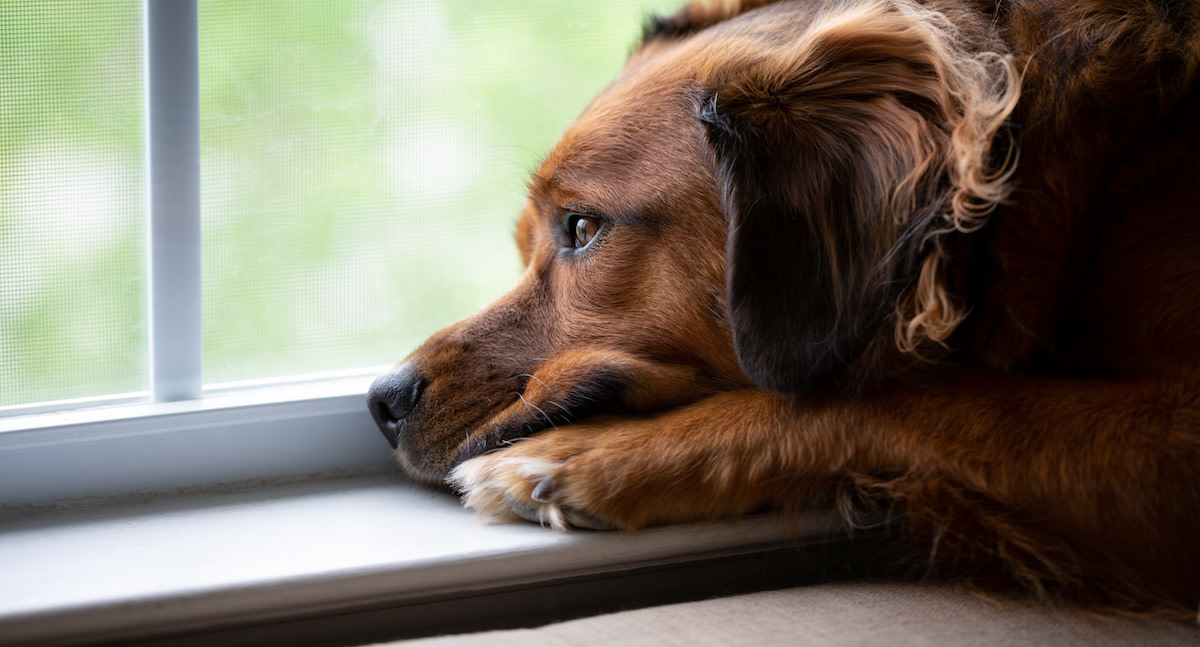Can Dogs Get Depressed? Causes, Signs and Treatment
Written by MasterClass
Last updated: Feb 15, 2023 • 3 min read
Dogs can get depressed. Our furry friends experience strong emotions just like us, including sadness. Learn the signs of dog depression and how to treat them.
Learn From the Best
Can Dogs Get Depressed?
Dogs get depressed and often express that condition through physical and mental behaviors that resemble symptoms of human depression. Major life events—including anxiety, the loss of a family member, schedule changes with dog owners, and even underlying medical conditions—can trigger depression in dogs.
Pet owners should learn to recognize the symptoms of dog depression and orient themselves with ways to help their furry friend’s emotional state.
Causes of Dog Depression
Many factors cause dog depression. Some of the most common causes of depression are:
- Boredom: Canine depression can often result from a lack of physical or mental stimulation. Larger and more active dog breeds are particularly susceptible to depression when there’s less playtime and more isolation due to changes in owners’ schedules or even seasonal shifts.
- Environmental changes: The American Kennel Club notes that changes to a dog’s home life often take their toll on a dog’s mood. These changes include relocation to a new home or the addition of a new baby or new pet.
- Illness and trauma: Both physical health problems and mental health issues are potential causes of depression in your pooch. The former include chronic pain and disease, while the latter encompasses abuse, injury, or phobias.
Signs of Depression in Dogs
There are several significant symptoms of depression in dogs. The most common signs are:
- Activity levels: A lethargic dog may be less of a tired pup than a sad dog. Low energy and changes in sleeping habits are both common indicators of dog depression.
- Behavior modification: Depression often manifests itself in noticeable changes in a dog’s behavior. Dogs may exhibit new and different body language or behavior around family members and new people alike. They may also show signs of anxiety or obsessive behavior, such as excessive licking.
- Change in or lack of appetite: One of the key warning signs for dog depression is a sudden or gradual loss of interest in eating. Dogs may also experience a change in appetite and prefer a different kind of dog food or even human food.
How to Treat Dog Depression
There are several ways to treat dog depression. Among the most effective methods are:
- Activities: A dog needs mental and physical stimulation and benefits from both exercise and attention. Take longer walks or car rides with your dog or set up additional playtime with other pups at a dog park. Provide them with toys that keep them active and reward good behavior with positive reinforcement.
- Companion animal: Some dogs benefit from a second pet in their homes, which may alleviate separation anxiety and boost low moods. However, an additional pet may add to depression and also tax your ability to provide enough attention to your depressed dog.
- Consistency: Dogs also crave structure in their lives. Keep a regular schedule of activities, feeding time, and sleeping as much as possible. Introduce schedule changes gradually.
When to Consult a Vet for Dog Depression
Consult your doctor of veterinary medicine (DVM) if your dog stops playing or eating altogether or exhibits new symptoms, such as gastrointestinal issues or destructive behavior. Your vet may suggest a checkup with a dog trainer or veterinary behaviorist or may even prescribe pharmaceutical assistance in the form of antidepressants. However, pharmaceuticals should be one part of a treatment plan that also includes additional attention and changes to the dog’s environment, if necessary.
Want to Learn More About Training the Goodest Boy or Girl?
Your dream of having a dog who understands words like “sit,” “stay,” “down,” and—crucially— “no” is just a MasterClass Annual Membership away. The only things you’ll need to train up a well-behaved pup are your laptop, a big bag of treats, and our exclusive instructional videos from superstar animal trainer Brandon McMillan.
